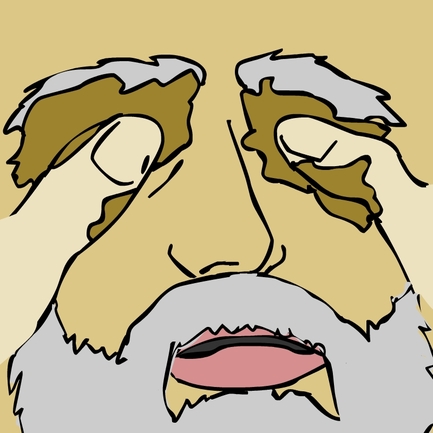“Wow, your shirt is blinding!”
“Can’t you see? Are you blind or something?”
“I lost my sight. I am blind.”
What does the word “blind” mean? In conventional sense, blind is used in three different forms of speech: noun, verb, and adjective. Its noun version being the one most often applied, its representative definition is "anything which obstructs the light or sight" (“OED”). The word has up to fourteen definitions for each form of speech, with close interrelation among them. Everything has to do with intruding with the view or anything of concealment. In this way, words with negative connotations seem to be used in almost all the definitions such as “obstruct, block, conceal, prevent, deprive, make difficult, and hide.” One definition that is unique and central to the multi-usage of the word was the sixth definition of the noun version, which was "any thing or action intended to conceal one's real design, a pretense, a pretext" (“OED”). This particular description distinctly impactful because it touches beyond just the sight-based definition of blind. For example, parents could hide a life-changing fact from their child for their own good, making the child blind to a possibility. Also, whoever lives in one’s own world and is unable to step out of their comfort zone is blind to the deeper message that is out there or a greater experience in life. As the modern trend has shaped the word to become more applicable to areas beyond physical impairment, the word seems to mean differently to various groups in both literal and applicative sense. The idea all centers around the main premise: One doesn’t have to be visually blind to be blind.
“Can’t you see? Are you blind or something?”
“I lost my sight. I am blind.”
What does the word “blind” mean? In conventional sense, blind is used in three different forms of speech: noun, verb, and adjective. Its noun version being the one most often applied, its representative definition is "anything which obstructs the light or sight" (“OED”). The word has up to fourteen definitions for each form of speech, with close interrelation among them. Everything has to do with intruding with the view or anything of concealment. In this way, words with negative connotations seem to be used in almost all the definitions such as “obstruct, block, conceal, prevent, deprive, make difficult, and hide.” One definition that is unique and central to the multi-usage of the word was the sixth definition of the noun version, which was "any thing or action intended to conceal one's real design, a pretense, a pretext" (“OED”). This particular description distinctly impactful because it touches beyond just the sight-based definition of blind. For example, parents could hide a life-changing fact from their child for their own good, making the child blind to a possibility. Also, whoever lives in one’s own world and is unable to step out of their comfort zone is blind to the deeper message that is out there or a greater experience in life. As the modern trend has shaped the word to become more applicable to areas beyond physical impairment, the word seems to mean differently to various groups in both literal and applicative sense. The idea all centers around the main premise: One doesn’t have to be visually blind to be blind.

 RSS Feed
RSS Feed